Punjab Farmers Disunity and the Elusive SAD-BJP Unity.
A fragmented political scenario and lack of a titanic statesman leaves Punjab on verge of despondency, despair and disruption, an eco-system that anti-national elements shall be quick to exploit.
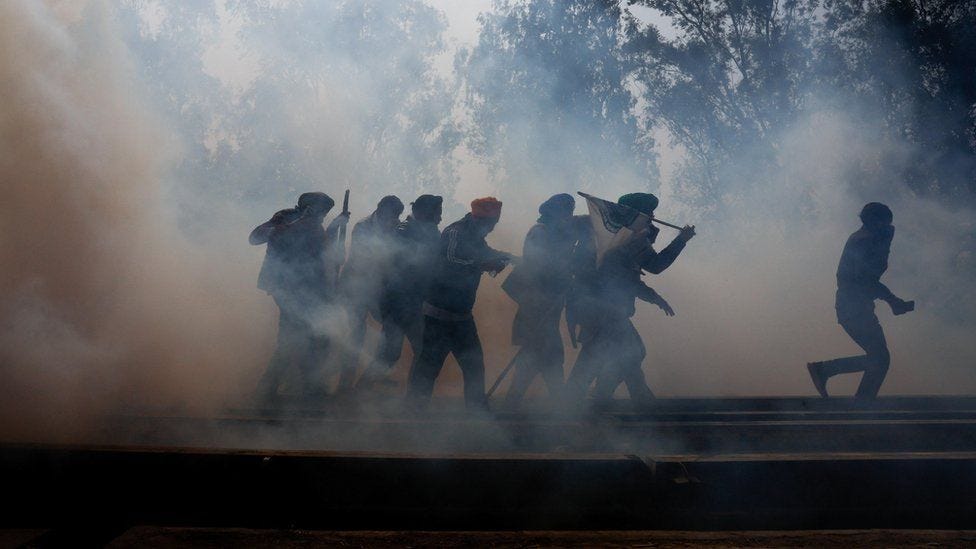
The Prelude to Discussion
On the evening of 8th February 2024, as I was driving past the verdant and sprawling campus of the Mahatma Gandhi State Institute of Public Administration, Chandigarh—where I had concluded my service in the IAS on 31 July 2021—I noticed an unusually heavy security presence. This was not typical for the otherwise tranquil and secluded campus located in the institutional area of Sector 26, Chandigarh. Curiosity led me to stop and enquire about the reason for this heightened security. I was informed that a number of Union Ministers were expected to arrive shortly for discussions with leaders of the various Kisan Unions from Punjab.
A Personal Connection
Hoping to connect with one of the senior-most figures from the Kisan Unions, I reached out to the doyen of the Bharatiya Kisan Union (BKU), enquiring whether he was in town and, if so, whether he could spare some time to join me for a cup of tea. My acquaintance with this venerable gentleman extends over three decades, marking a long-standing relationship built on mutual respect and understanding.
Disunity Among the Unions
To my surprise, the octogenarian leader informed me that they were not involved in the current negotiations. He detailed the unfolding events, revealing a rift within the farmer's collective. Under the banner of Samyukt Kisan Morcha (SKM), a decision had already been taken to call for a nationwide bandh on 16 February. Support for this one-day strike was widespread, with various retail organizations across the country expressing their solidarity. However, two splinter organizations proposed a march to Delhi on 18 February, a move that was not endorsed by the other unions, citing it as a misadventure at this stage. However, the leaders of these splinter groups, Pandher and Dallewal, inexplicably decided to advance their march to 13th February instead of the 18th. The SKM coordination committee urged them to reconsider, emphasizing the potential distraction from the planned nationwide bandh on the 16th February. Nonetheless, they persisted with their plan for the 13th, ostensibly motivated by concerns that the election code of conduct could be imposed by the 18th.
Suspicions of Division
The veteran leader expressed suspicions that the two splinter organisations were operating under the influence of the Central Government, if not as their direct agents, with the intention of further fragmenting the farmers' organisations. He found it rather unusual that Union Ministers would travel specifically to Chandigarh to meet representatives of these groups, despite their representing less than 5% of Punjab's farmers and landless agricultural labourers. This move raised questions about the true motives behind the negotiations and the Central Government's strategy regarding the farmers' collective actions.
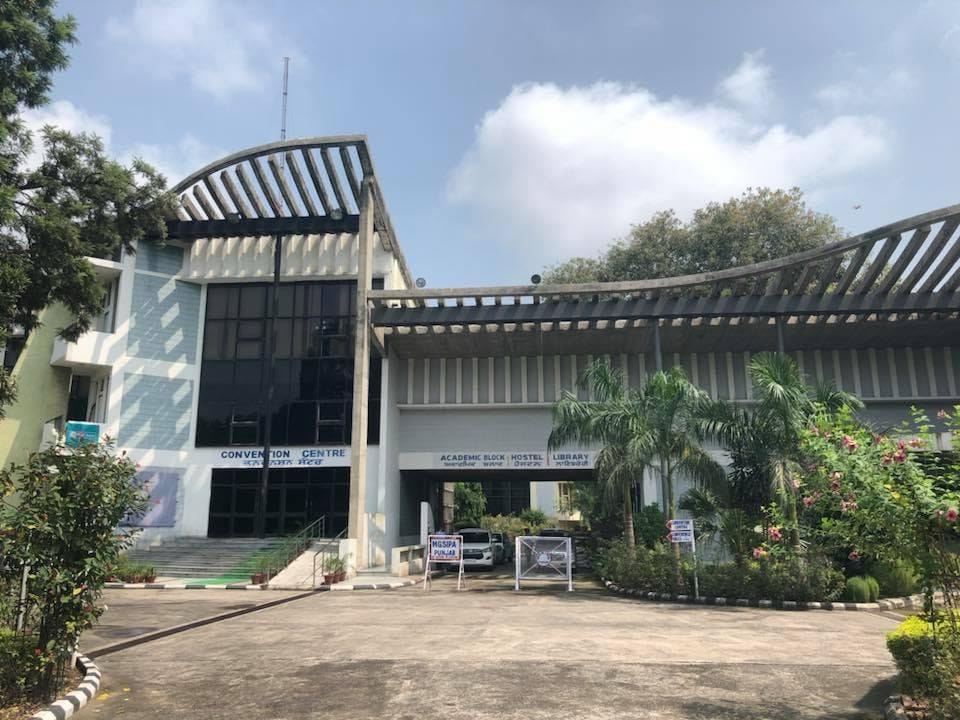
Negotiation Outcomes
Following the initial discussions, a series of negotiations unfolded, marked by three intense rounds of talks held on the 8th, 12th, and 15th of February. These discussions often continued late into the night, reflecting the seriousness of the matter at hand. Finally, on the night intervening the18th and 19th of February, a significant breakthrough was achieved when the Union Ministers proposed a contractual Minimum Support Price (MSP) for five key crops—pulses, cotton, and maize among them—for a fixed period of five years. This offer represented a crucial progress in the ongoing dialogue between the farmers' unions and the government, potentially setting a new precedent for agricultural policy and farmer support in India.
Escalation and Tragedy
Pandher and Dallewal initially promised to respond to the Government's offer within two days but ultimately rejected the package on 21 February, announcing their intention to march to Delhi. Their efforts were stymied by the virtual fortification of Haryana's borders at Shambhu and Khanauri, preventing their entry from Punjab. The situation took a dire turn on 22nd February with the tragic death of 21-year-old Shubh Karan Singh, who allegedly succumbed to a bullet wound from Haryana police firing, exacerbating tensions significantly.
In response to this incident, the other major farmer organisations, while not actively participating in the ongoing sit-in protest at Shambhu and Khanauri borders or being a part of the Delhi march, offered moral support to Pandher and Dallewal factions. They announced their own token protests within Punjab and Haryana, signaling solidarity without direct involvement. A significant demonstration was, hwoever, planned for 14 March 2024 at New Delhi's Ram Lila ground, expected to draw over a lakh farmers from across the country. This planned gathering comes with the full knowledge that the election code of conduct could be in effect by then, casting doubt on the feasibility of such a large assembly in the national capital amidst strict administrative restrictions.
A Historic Repeal
Reflecting on November 2021, a pivotal moment occurred when Prime Minister Narendra Modi, commemorating the birthday of Guru Nanak Dev Ji, announced the repeal of the three controversial Farm Laws. This decision marked the conclusion of what was arguably the longest farmers' protest in the country's history. The farming community celebrated this significant victory with processions that began from Anandpur Sahib, proceeding to the Golden Temple in Amritsar, and then spreading throughout the state. This moment was not only a testament to the farmers' resilience and unity but also a historic event in India's agrarian politics, symbolizing a triumph of collective action over contentious legislation.
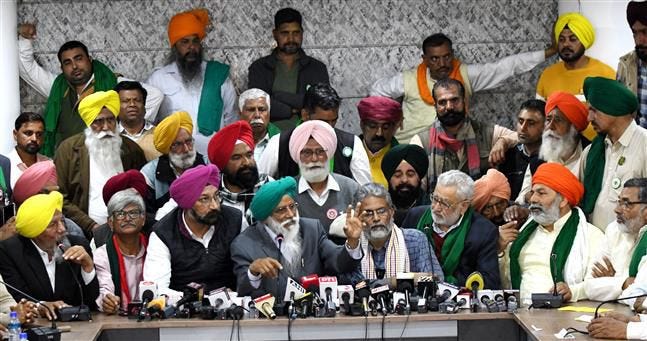
Political Divergence
Following the repeal of the Farm Laws, the farmers' organizations exhibited varied responses in terms of political engagement. Particularly, the left-leaningUgrahan group of the Bharatiya Kisan Union (BKU), with its strong base in the districts of Bathinda, Mansa, Barnala, and Sangrur, publicly declared its decision to abstain from participating in the electoral process. Conversely, the Balbir Singh Rajewal faction of BKU took a distinctive path by establishing its own registered political party, the Samyukt Samaj Morcha (SSM), to contest in the Punjab Vidhan Sabha elections held in February 2022.
This foray into formal politics by a group directly emerging from the farmers' movement marked a significant transition. However, the SSM, despite its grassroots foundation and earnest intentions, faced challenges in the electoral arena. Lacking a distinctive election symbol and contending in a highly competitive political landscape, no candidate endorsed by SSM were unable to secure victory, overshadowed by the overwhelming support for the Aam Aadmi Party (AAP), which swept through the state in a wave of popular approval. This outcome highlighted the complexities and challenges of transitioning from agrarian protest movements to the political domain.
Political Alliances and Prospects
While the alliance between the Aam Aadmi Party (AAP) and the Congress has shown promise in other parts of the country, including New Delhi, its realization in Punjab remains elusive as the state prepares to elect its 13 Members of Parliament to the Lok Sabha. This scenario underscores the unique political dynamics and challenges within Punjab, where the electorate's expectations and political affiliations often diverge from national trends.
Simultaneously, there are ongoing yet discreet discussions between the Shiromani Akali Dal (SAD) and the Bharatiya Janata Party (BJP) aimed at rejuvenating their former alliance, albeit on completely new terms. This development indicates a potential shift in political strategies and alliances in response to the evolving political landscape of Punjab. However, as of now, no concrete details or outcomes of these negotiations have been made public, leaving the political future of this alliance and its impact on Punjab's political scene a matter of speculation and anticipation, especially after the tragic death of Shubh Karan Singh.
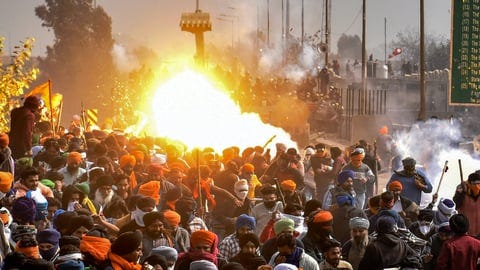
Reflections on Unity and Leadership
In the broader context of Punjab's current political and social climate, the disunity among various farmers' organisations and their reluctance to accept pragmatic solutions have exacerbated the challenges facing the state. The decision of the local farmer groups to adopt a hardline stance, especially in the aftermath of the tragic demise of the young Shubh Karan Singh and the refusal to allow a post-mortem examination, does not serve the interests of Punjab's farmers or the state as a whole. This situation highlights a significant leadership vacuum, with no singular statesman emerging to command universal respect and authority to steer the community through these turbulent times.
The absence of such a unifying figure has contributed to an atmosphere of stagnation and despondency, a stark contrast to the dynamic and resilient spirit traditionally associated with Punjab. The state, known for its vibrant culture, robust agriculture, and indomitable spirit, finds itself at a crossroads, seeking direction and leadership that can reconcile differences, forge unity, and chart a path toward progress and prosperity.




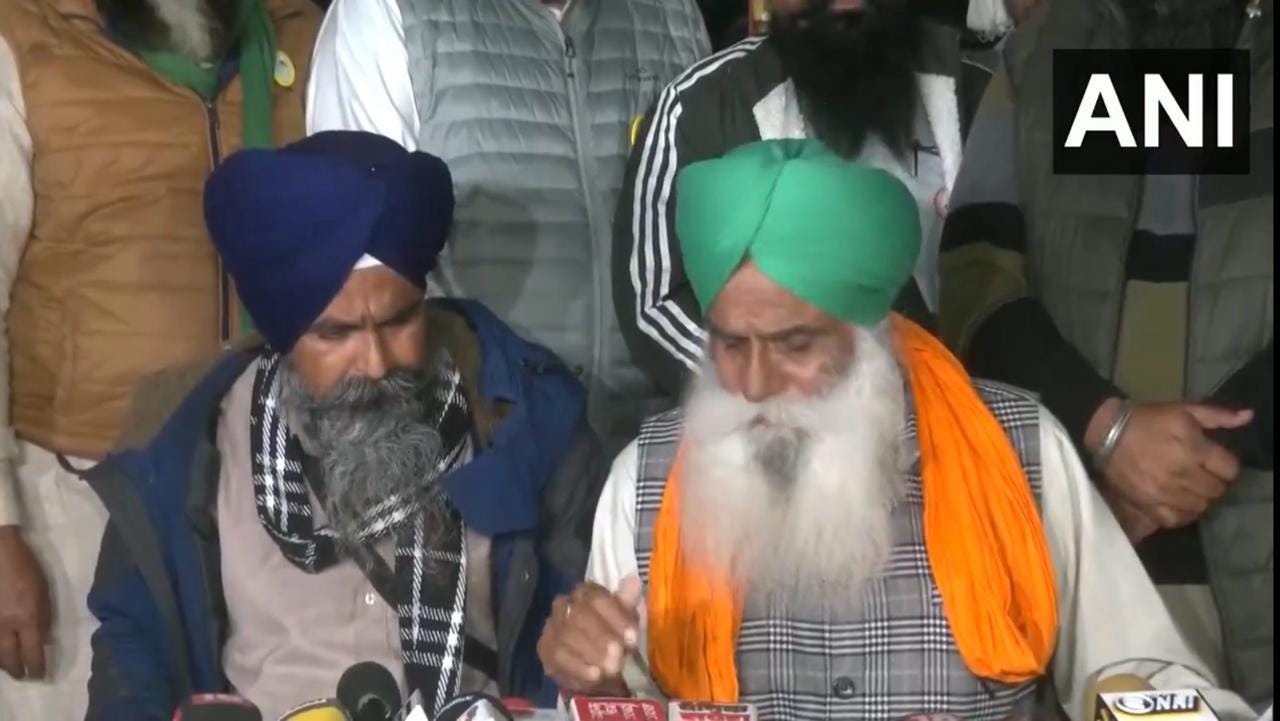
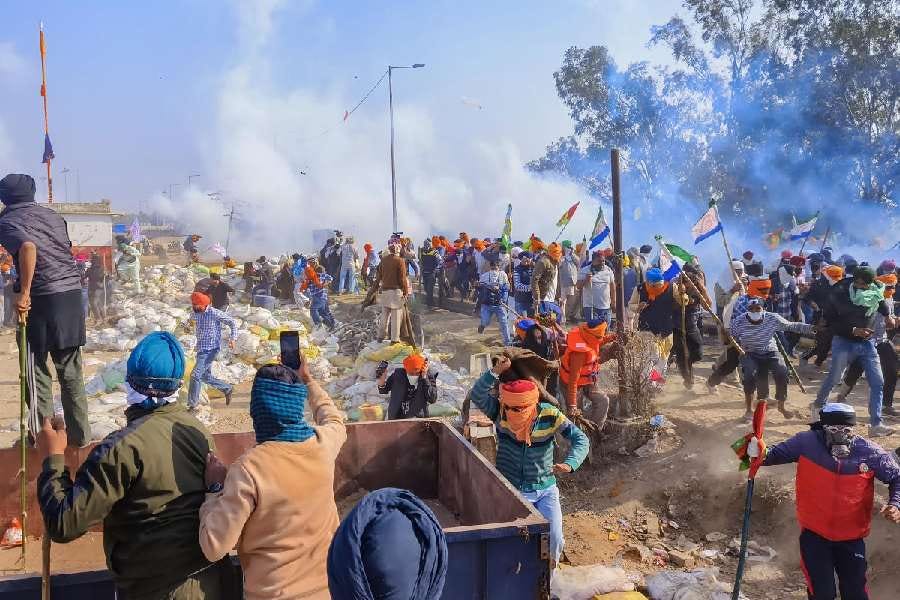

Sir , you gave the answer in your last paragraph. A complex and emotional issue with no black and white solution can only be resolved with presence of a charismatic leader with integrity and following.